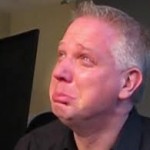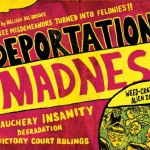Law and Theology – Who Says It’s Not Practical ???
I  was glad to see that Bruce linked to the fascinating debate on the nature of legal education prompted by Brent Newton’s article claiming that law professors “preach” what they don’t “practice.” I’ll comment later, although my general view, as someone who has much more practice experience than the typical full time legal academic, I think its an issue that is often drawn too starkly and that requires a nuanced response.
was glad to see that Bruce linked to the fascinating debate on the nature of legal education prompted by Brent Newton’s article claiming that law professors “preach” what they don’t “practice.” I’ll comment later, although my general view, as someone who has much more practice experience than the typical full time legal academic, I think its an issue that is often drawn too starkly and that requires a nuanced response.
But today I want to talk about Law & Theology (10 am on Friday mornings in 204 for anyone who wants to add a seminar) and Glen Beck. Newton argues that law schools overemphasize “theoretical, increasingly interdisciplinary scholarship” and courses. But Glen Beck has put law (0r at least politics) and theology smack into the middle of the public debate. In this fallen world, we may have to take that where we can find it.

